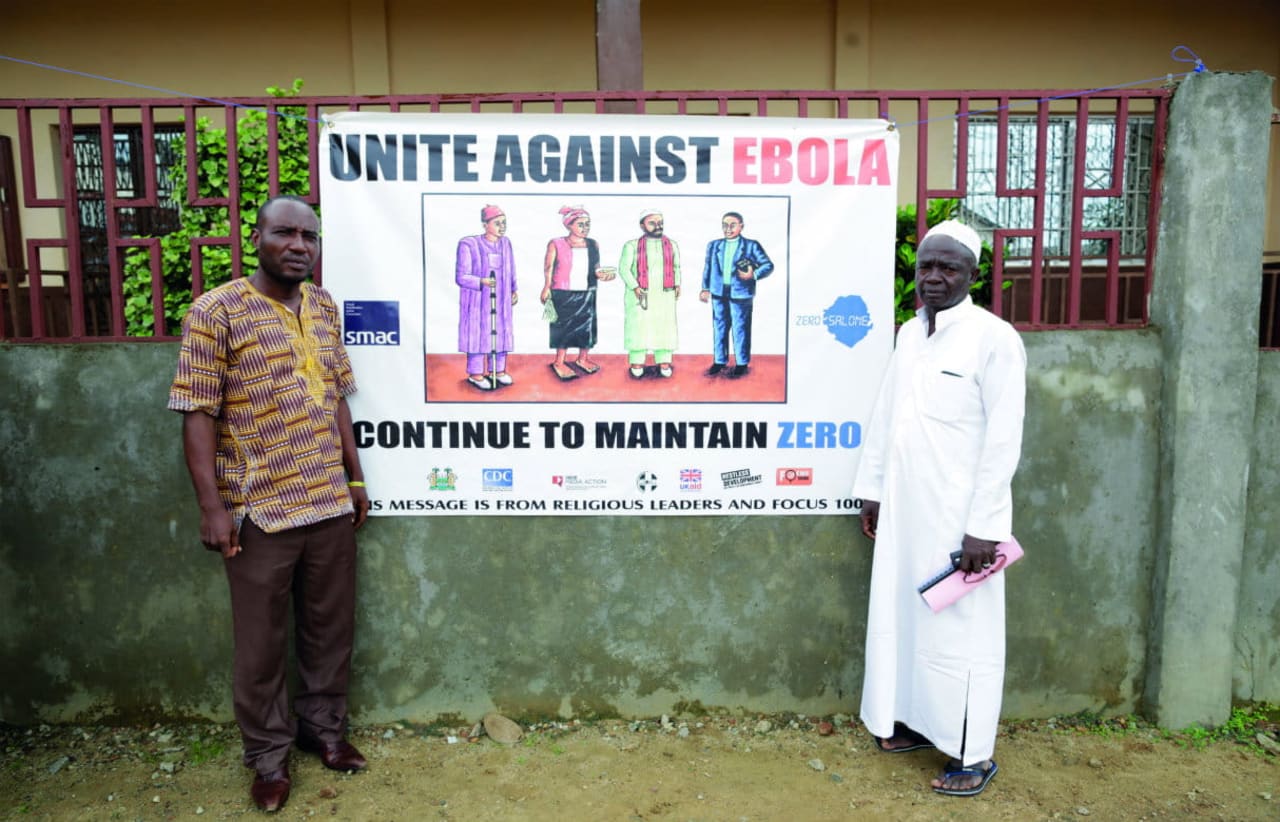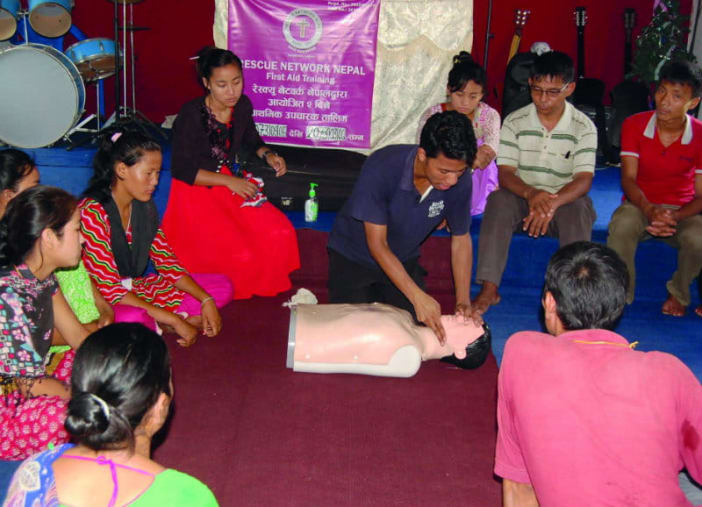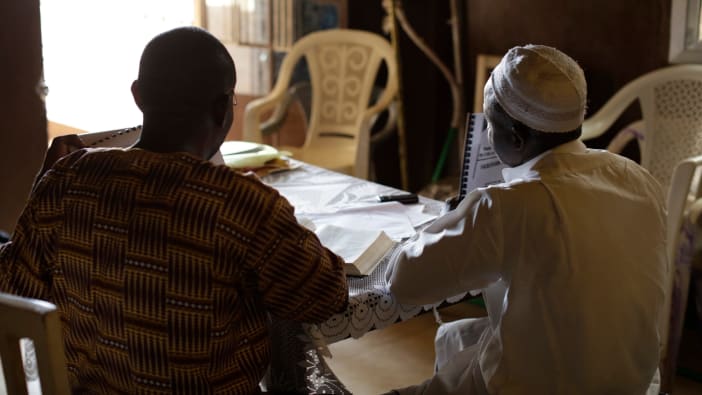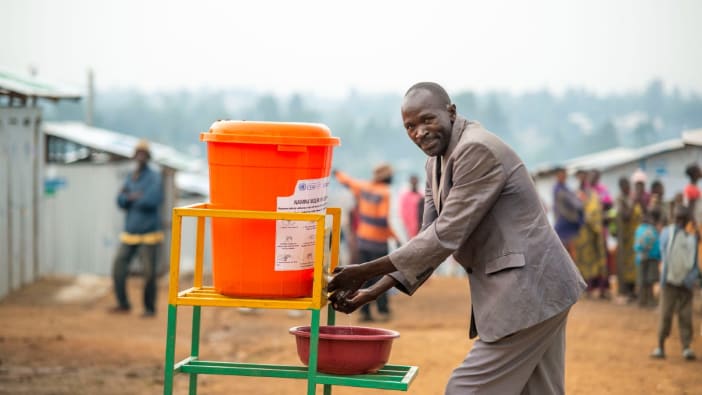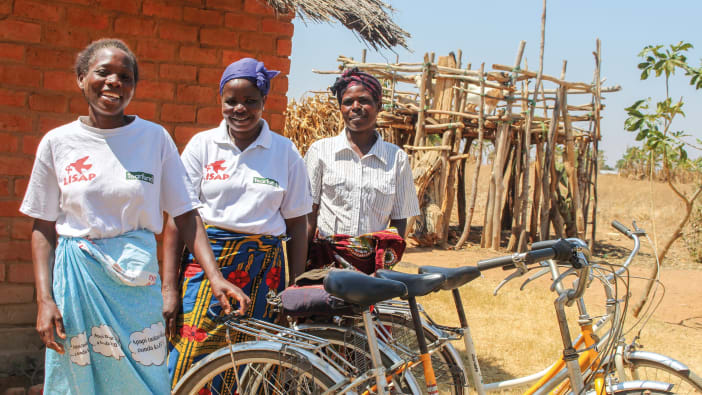Patricia Conteh was a Projects Officer for Tearfund in Sierra Leone when the Ebola virus hit the country in 2014. Here, she shares her memories of the way faith leaders changed the direction of Ebola.
What was it like when the Ebola outbreak hit Sierra Leone?
Sierra Leoneans are very friendly and warm, and we love visitors. People are always going in and out of each other’s homes. But when Ebola came, that stopped.
Messages started coming out that Ebola is here and Ebola kills. Most people had never heard about Ebola, so they did not know how to respond. It caused a divide even in homes. Husbands were not sure if their wives had the disease, and wives were not sure of their husbands. It was as if Ebola attacked the very essence of our culture.
How did faith communities respond?
At first, ignorance caused a lot of problems. Many churches denied that Ebola was a medical problem. They said it was a judgement from God because we were sinful. A lot of church leaders laid hands on people and got infected, and spread the virus further.
People wanted to continue with traditional burial practices. The Muslims believed that dead bodies had to be washed and prayed over in a certain way. And Christians would cry over a dead person and touch them. These things increased the number of people infected.
How did the faith leaders change their response?
Faith leaders began to realise that Ebola was more than a spiritual issue. So the Council of Churches and the Inter-Religious Council of Sierra Leone had a meeting. That was when the game changed. They asked the government to train them about Ebola.
Christian and Muslim leaders were trained together and worked together. They looked at the Bible and Qur’an to find scriptures that supported the Ebola response. They held discussion groups and educated people together. That was very unusual in Sierra Leone.
In Sierra Leone, there is a huge amount of trust and respect for faith leaders, so people listened to them. Everybody did what the pastor said: do not touch others, wash your hands, wear protective clothing etc. Those things helped a lot.
How did faith groups spread health messages about Ebola?
Faith groups worked together with NGOs to spread health messages. Both Muslims and Christians used video and radio broadcasts. Tearfund, Unicef and other organisations sent posters to churches, which they put up around their communities. Scripture Union used dramas, songs and dances about how to respond to Ebola. Members of both the church and the mosque took part.
What other support did churches provide?
The church provided psychosocial and spiritual support. Tearfund trained pastors and gave them phones so they could call people with Ebola. The pastors spoke to them and prayed with them over the phone. In this way they could offer support without risking infection. The pastors also provided spiritual support when somebody died.
Churches gave practical help to people in quarantine (that is, kept in isolation for a period to ensure they would not infect others). Church members provided food, water and toiletries.
A big part of Tearfund’s response was tackling stigma. If people are stigmatised, they will hide themselves instead of going to hospital. Church leaders spoke in their services about not stigmatising people with Ebola. In some communities, people who recovered from Ebola were rejected when they came back from the treatment centres. The church held community meetings to help the local people to accept them again.
Discussion questions
- How can faith leaders be prepared for possible health emergencies?
- How can we reach out to isolated people in our communities? How can we tackle stigma?
Email: [email protected]


